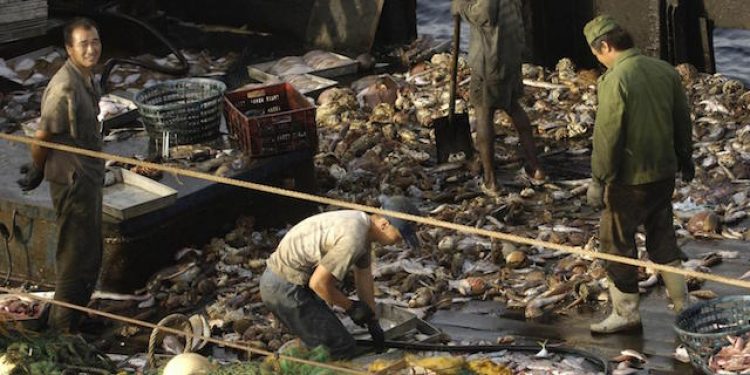The ITF (International Transport Workers’ Federation) and the International Trade Union Confederation (ITUC) have today submitted a case to the International Labour Organisation (ILO) against the government of Thailand relating to breaches of ILO Convention 29 on forced labour in the Thai fishing industry. Thailand signed the convention in 1969.
The two global union federations assert that despite the Thai government having taken a number of positive steps in recent years to repeal obsolete legislation and introduce new sector-specific laws, it continues to maintain a regulatory framework that allows for forced labour and human trafficking by Thai fishing vessel owners.
The unions also claim that Thailand is failing to ensure that systems are in place to allow the protections of the law to be enforced effectively.
‘The commercial fishing industry plays a vital part in the economy of Thailand,’ said ITF general secretary Steve Cotton. ‘There is an apparent willingness from the Thai government to combat exploitation and abuse but the current, significant gaps in law and practice are leaving hundreds of thousands of fishers vulnerable to forced labour and trafficking – that’s Thai nationals and a huge amount of migrant workers.’
According the ITF and the ITUC, there are many examples of forced labour within the Thai fishing industry in a variety of formats including physical violence, psychological pressure, deception and coercion in recruitment processes and retention of identity documents.
‘Slavery is embedded in global supply chains,’commented ITUC general secretary Sharan Burrow. ‘Workers and consumers need the security and protection of the rule of law. We call upon the Thai authorities and indeed all governments to act to end slavery, and multinational companies and suppliers to take responsibility for every corner of their supply chains.’
The ITF and ITUC are calling for a total overhaul of the laws and inspection regime related to the Thai fishing industry.









